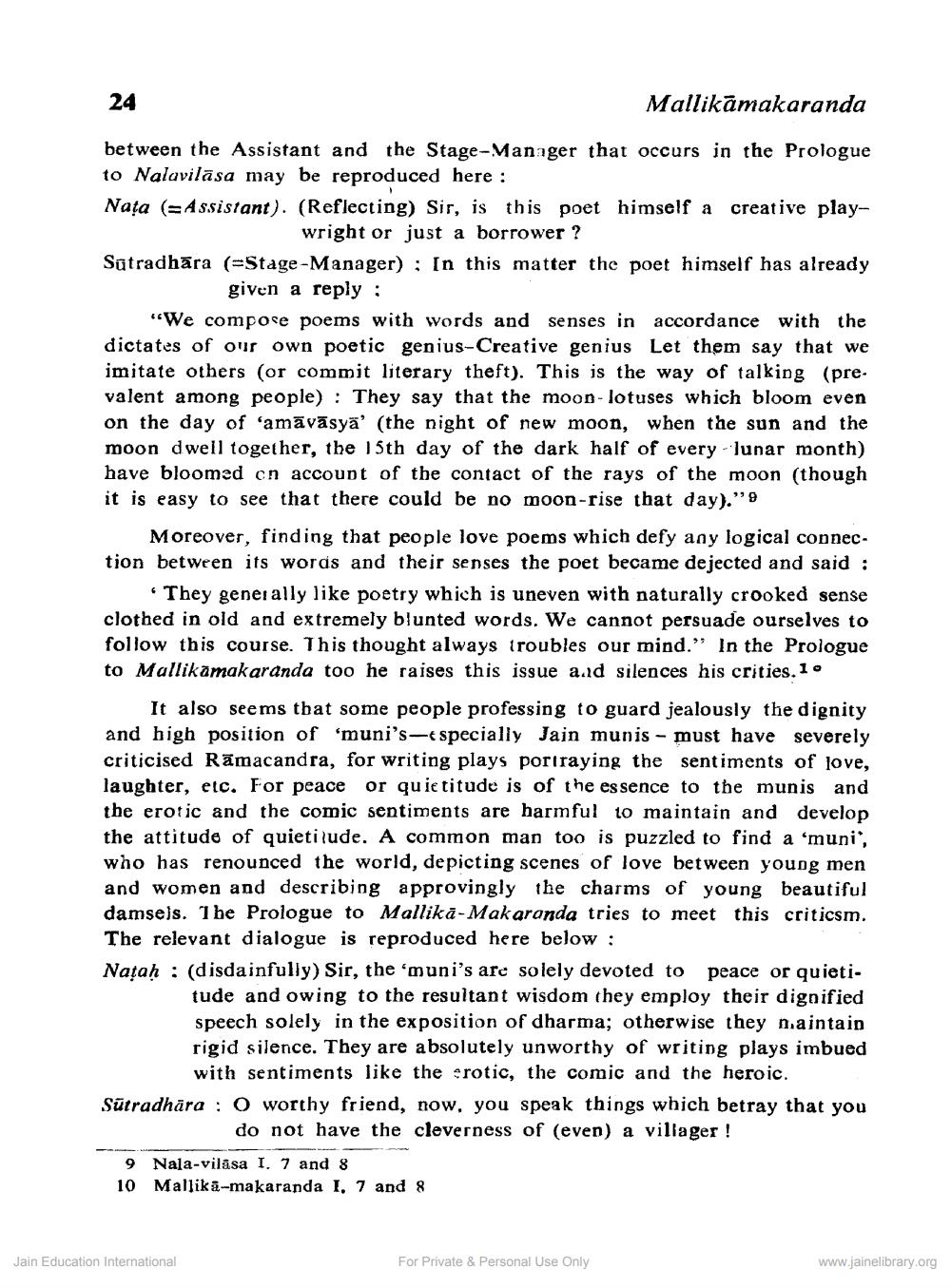________________
24
Mallikāmakaranda
between the Assistant and the Stage-Manager that occurs in the Prologue to Nalavilāsa may be reproduced here : Nața (= Assistant). (Reflecting) Sir, is this poet himself a creative play
wright or just a borrower ? Sūtradhāra (=Stage-Manager) : In this matter the poet himself has already
given a reply : “We compose poems with words and senses in accordance with the dictates of our own poetic genius-Creative genius Let them say that we imitate others (or commit literary theft). This is the way of talking (pre. valent among people): They say that the moon- lotuses which bloom even on the day of ‘amāvāsyā' (the night of new moon, when the sun and the moon dwell together, the 15th day of the dark half of every lunar month) have bloomed en account of the contact of the rays of the moon (though it is easy to see that there could be no moon-rise that day)."9
Moreover, finding that people love poems which defy any logical connection between its words and their senses the poet became dejected and said :
They generally like poetry which is uneven with naturally crooked sense clothed in old and extremely blunted words. We cannot persuade ourselves to follow this course. This thought always troubles our mind." In the Prologue to Mallikamakaranda too he raises this issue and silences his crities. 1 •
It also seems that some people professing to guard jealously the dignity and high position of 'muni's-specially Jain munis - must have severely criticised Rāmacandra, for writing plays portraying the sentiments of love, laughter, etc. For peace or quie titude is of the essence to the munis and the erotic and the comic sentiments are harmful to maintain and develop the attitude of quieti{ude. A common man too is puzzled to find a ‘muni', who has renounced the world, depicting scenes of love between young men and women and describing approvingly the charms of young beautiful damsels. I be Prologue to Mallika-Makaranda tries to meet this criticsm. The relevant dialogue is reproduced here below : Națaḥ : (disdainfully) Sir, the 'muni's are solely devoted to peace or quieti
tude and owing to the resultant wisdom they employ their dignified speech solely in the exposition of dharma; otherwise they naintain rigid silence. They are absolutely unworthy of writing plays imbued
with sentiments like the erotic, the comic and the heroic. Sūtradhāra : 0 worthy friend, now, you speak things which betray that you
do not have the cleverness of (even) a villager !
9 Nala-vilása I. 7 and 8 10 Mallika-makaranda I, 7 and 8
Jain Education International
For Private & Personal Use Only
www.jainelibrary.org




